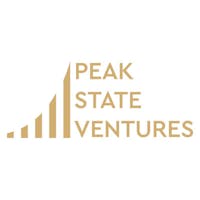Now is the perfect time to start a “passion career,” says Rob Kingyens, Founder and CEO of New York-based online learning platform Yellowbrick. But many people struggle to even identify their passions, let alone connect them to a viable career path.
“Esports, for example, is a multibillion-dollar, relatively new industry, and there are tons of jobs available. But most people have no idea what the jobs are even called,” says Kingyens.
Adding yet another layer of complexity, COVID-19 has recently made working from home a long-term reality for many. This means that jobseekers can now consider entirely new career paths and the potential to work for any company they choose, regardless of location.
Through Yellowbrick, Kingyens is determined to teach creatives how to construct professions out of their passions. Programs like Film & TV Industry Essentials, Performing Arts Industry Essentials, Sneaker Essentials, Gaming and Esports Industry Essentials and Music Essentials immerse students in creative work and connect them with previously unattainable high-level industry players, mentors and related post-secondary programs. Students leave with a unique set of insights and experiences, which helps them stand out from the crowd.

Here Kingyens shares how Yellowbrick helps students move from floundering to finding a dream job—even when they aren’t quite sure what that is yet.
EdSurge: What’s unique about Yellowbrick’s programs?
Kingyens: We bring academics and industry together. So, students get the best of both worlds—academic credibility and industry and market validation. They learn from the best in education and earn a credential that validates that for them. Then, because they work with our brand partners, what they learn is relevant to their career and what’s going on today in the market.
Take music, for example, we’ll partner with a top tier school like NYU Tisch School of the Art’s Clive Davis Institute of Recorded Music or fashion where we’ll partner with The New School’s top-ranked Parsons School of Design. Then, we also bring in industry or brand partners like Billboard or Complex that are highly recognized and relevant to students in these fields.
We’ve also adapted over time to provide mostly asynchronous learning but add in synchronous where it matters. A lot of that is support and motivation for the student through human connection—making them feel like they’re not alone.
Who’s taking Yellowbrick courses?
The average age of our students is 28. Half are high school to college-age, and half are young professionals and career changers. The younger group is thinking about undergrad or what to do after high school. While the career changers are marketers, creators or business people in a completely different field or industry who take our music, sneakers or streetwear programs because that’s what they love to do after work.
It’s an incredibly diverse group. There are very few online learning providers that can say they have 14-year-olds and 40-year-olds in the same class together!
We focus on offering learning to non-traditional students that have opted out of traditional education for whatever reason. It could be the price barrier. It could be intimidation.
The sad reality is most students have terrible career direction unless they came from a very affluent family and had the chance to go to summer programs or internships. What we’re trying to do is bring them back into the education fold and give them the confidence to pursue learning and find a career they could be great at.
That’s why we make our programs affordable and accessible. Tuition for each of our programs is $1,000. That helps remove the cost barrier for both domestic and international students.
How do your programs prepare students to find and succeed in a “passion career”?
In creative careers, employers want to see a portfolio piece. The new resume is not words. It’s actually demonstrating what you’ve done. It’s consistent no matter what the skill set is. What I’m hearing across the board is “Show me.”
“Show me something you analyzed.” If it’s creative, “Show me a design.” Or “Show me a product, a UI element…”
Now, think about that through the lens of non-traditional students. Suppose a student did not go through a traditional academic program or a top-tier school. In that case, they might have all the aptitude and talent in the world, but what they lack is something that will demonstrate that aptitude and skill.
So we’ve developed our programs to have capstone projects where students can showcase their learning. A capstone may be a business plan for one student. For another, it might be a t-shirt or hoodie design because they’re pursuing a creative path. It’s something that proves their skillset and demonstrates their talent.
You have some high-profile partners. How do you get so many big names involved?
It definitely starts with being aligned on mission and values. Our programs don’t start from a business perspective or financial terms.
Yellowbrick’s mission and vision are to help people find their path to a career they’re going to love. But it’s also about supporting diversity, inclusion and access. Our school partners also want to solve that problem. Often, they just don’t know how to do it on their own. On the brand side, it’s the same. Our partners care about what we’re trying to accomplish together, first and foremost, before we talk about the business side of things.
Because part of our mission is access, diversity and inclusion, we've supported underserved communities since our inception, offering robust scholarship programs for underprivileged youth and BIPOC (Black, Indigenous and people of color) students. In addition, we run pilots with schools in New York City as well as LA, where we provide our course materials for the K-12 system. Students at Meyer Levin Middle School in New York, for example, combine Juneteenth celebrations with our sneaker unit to explore Black history.

In our New York program, for example, we worked with a Brooklyn junior high school to help staff incorporate the sneaker course modules into their core-curriculum—applying sneaker culture materials to subjects like math, design, history, literature and language. When they tied these lessons into something that many of the kids are passionate about, teachers found that they were able to hold attention better, reinforce knowledge and build relationships. By approaching kids with something they're already into, educators were able to build engagement and trust more easily than they otherwise would.
What's unique about our programs—and this is another reason why we work with university and brand partners—is that the teachers represent the full spectrum of age groups, ethnicities and genders. We want to make sure that, no matter what a student’s background is, someone teaching in the program resonates with them. The reality in a lot of education programs is that the teachers aren’t as diverse as the students. But if a student can learn from a teacher who was once on the same path they are on right now, that can provide some powerful inspiration.



